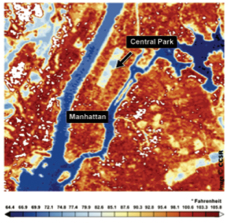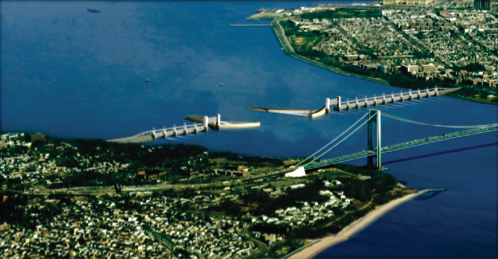What New Climate Report Reveals About Northeast Region
Posted in Science on February 4 2013, by Joyce Newman
Joyce H. Newman has been a Garden Tour Guide with The New York Botanical Garden for over seven years, and is the former editor of Consumer Reports GreenerChoices.org.

A draft of the latest National Climate Assessment by a distinguished federal advisory panel has been released this month for public review. It is based on the work of more than 240 expert authors organized under the United States Global Change Research Program.
Coming just days after 2012 was named the hottest year on record for the contiguous U.S., the draft report is unique in that it points out the impacts of climate change on specific regions, including the Northeast. It also notes economic risks and adaptive strategies for our area.
The Yale Forum on Climate Change and the Media has excerpted the report’s basic findings, which are deemed the scientific consensus. The findings underscore the human-driven causes of climate change as follows:
— “Global climate is changing, and this is apparent across the U.S. in a wide range of observations. The climate change of the past 50 years is due primarily to human activities, predominantly the burning of fossil fuels.”
— “Some extreme weather and climate events have increased in recent decades, and there is new and stronger evidence that many of these increases are related to human activities.”
— “Human-induced climate change is projected to continue and accelerate significantly if emissions of heat-trapping gases continue to increase.”

The report’s authors for the chapter on the Northeast are: Radley Horton, Columbia University and Gary Yohe, Wesleyan University (Convening Authors); and Lead Authors: William Easterling, Pennsylvania State University; Robert Kates, University of Maine; Mathias Ruth, University of Maryland, College Park; Edna Sussman, Fordham University School of Law; Adam Whelchel, The Nature Conservancy; David Wolfe, Cornell University.
They report four “key messages” for the Northeast region:
— “Heat waves, coastal flooding due to sea level rise, and river flooding due to more extreme precipitation events will pose a growing challenge to the region’s environmental, social, and economic systems. This will increase the vulnerability of the region’s residents, especially populations that are already most disadvantaged.”
–“Infrastructure will be increasingly compromised by climate-related hazards, including sea level rise and coastal flooding, and intense precipitation events.”
— “Agriculture and ecosystems will be increasingly stressed by climate-related hazards, including higher temperatures, sea level rise and coastal flooding, and more extreme precipitation events. A longer growing season may allow farmers to explore new crop options, but this and other adaptations will not be cost- or risk-free, and inequities exist in the capacity for adaptation.”
— “While the majority of states and several municipalities have begun to incorporate the risk of climate change into their planning activities, implementation of adaptation measures is still at early stages.”
You can find out more about the report and how to make public comments by April 12th via the Global Change website. For those interested in understanding how these changes impact New York and its neighbors, you can also access the report’s full chapter on the Northeast region here, or examine the situation abroad by visiting Dr. Scott Mori’s recent Plant Talk article on the topic as it relates to his experiences in New World tropical rain forests.

